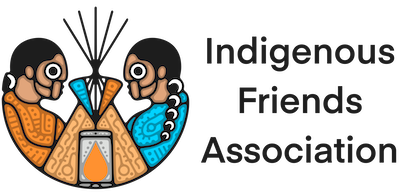Government & Public Sector Resources to Support Reconciliation
This section highlights key national and international frameworks that support reconciliation with Indigenous communities in Canada. It includes foundational documents like the Truth and Reconciliation Commission’s Calls to Action and UNDRIP, as well as government reports and advocacy organizations that track progress and support Survivors. These resources help guide policy, education, and institutional change.
For a PDF version of the resources, click here.
The Truth and Reconciliation Commission’s (TRC) Calls to Action
The Truth and Reconciliation Commission’s 94 Calls to Action outline specific policy, legislative, educational, and community-based actions that individuals and organizations can implement to redress the legacy of residential schools and advance the process of Canadian reconciliation. These Calls to Action address a range of areas, including child welfare, education, health, justice, and Indigenous languages and culture. Engaging with these actions is a foundational step toward building equitable and lasting partnerships with Indigenous communities.
To access this resource, click here.
United Nations Declaration on the Rights of Indigenous Peoples (UNDRIP)
UNDRIP is an international human rights instrument adopted by the United Nations that outlines the individual and collective rights of Indigenous Peoples worldwide. It affirms their right to self-determination, traditional lands, cultural expression, education, and free, prior, and informed consent (FPIC) regarding development and governance. In Canada, UNDRIP is increasingly used as a framework to guide policy decisions, foster government accountability, and shape partnerships with Indigenous communities grounded in mutual respect and recognition.
To access this resource, click here.
Calls for Justice – Missing and Murdered Indigenous Women and Girls (MMIWG)
The Final Report of the National Inquiry into Missing and Murdered Indigenous Women and Girls includes 231 Calls for Justice that serve as legal imperatives directed at governments, institutions, social service providers, and all Canadians. These calls aim to address the systemic causes of violence and discrimination faced by Indigenous women, girls, and 2SLGBTQQIA+ people. The report emphasizes the need for transformative justice, community-led solutions, cultural revitalization, and policy reform to ensure safety, healing, and justice for survivors and their families.
To access this resource, click here.
Government of Canada Progress Reports on Reconciliation
This resource provides updates on the Canadian government’s efforts to implement the TRC’s 94 Calls to Action. It includes information on federal investments in Indigenous communities, legislative developments, and timelines for reconciliation-related initiatives. By tracking this progress, organizations and individuals can stay informed about national reconciliation efforts and identify areas where further advocacy or support is needed.
To access this resource, click here.
The Indian Residential School Survivors Society (IRSSS)
The IRSSS offers essential services to residential school Survivors and intergenerational Survivors across British Columbia and beyond. Their work includes trauma-informed healing programs, cultural ceremonies, support groups, and crisis counseling. The society also engages in community education, advocating for broader awareness of the residential school legacy and its continued impact on Indigenous families. Supporting the IRSSS helps contribute to healing and reconciliation efforts at the grassroots level.
To access this resource, click here.
Reconciliation Canada
Reconciliation Canada is a national organization that creates space for open dialogue and transformative change through workshops, leadership development, and public education campaigns. Their programming is designed for individuals, businesses, and institutions seeking to engage in meaningful reconciliation. Rooted in Indigenous values and informed by Elder teachings, Reconciliation Canada fosters conversations that lead to personal growth, systemic change, and a shared commitment to equity.
To access this resource, click here.
For all inquiries Please:

